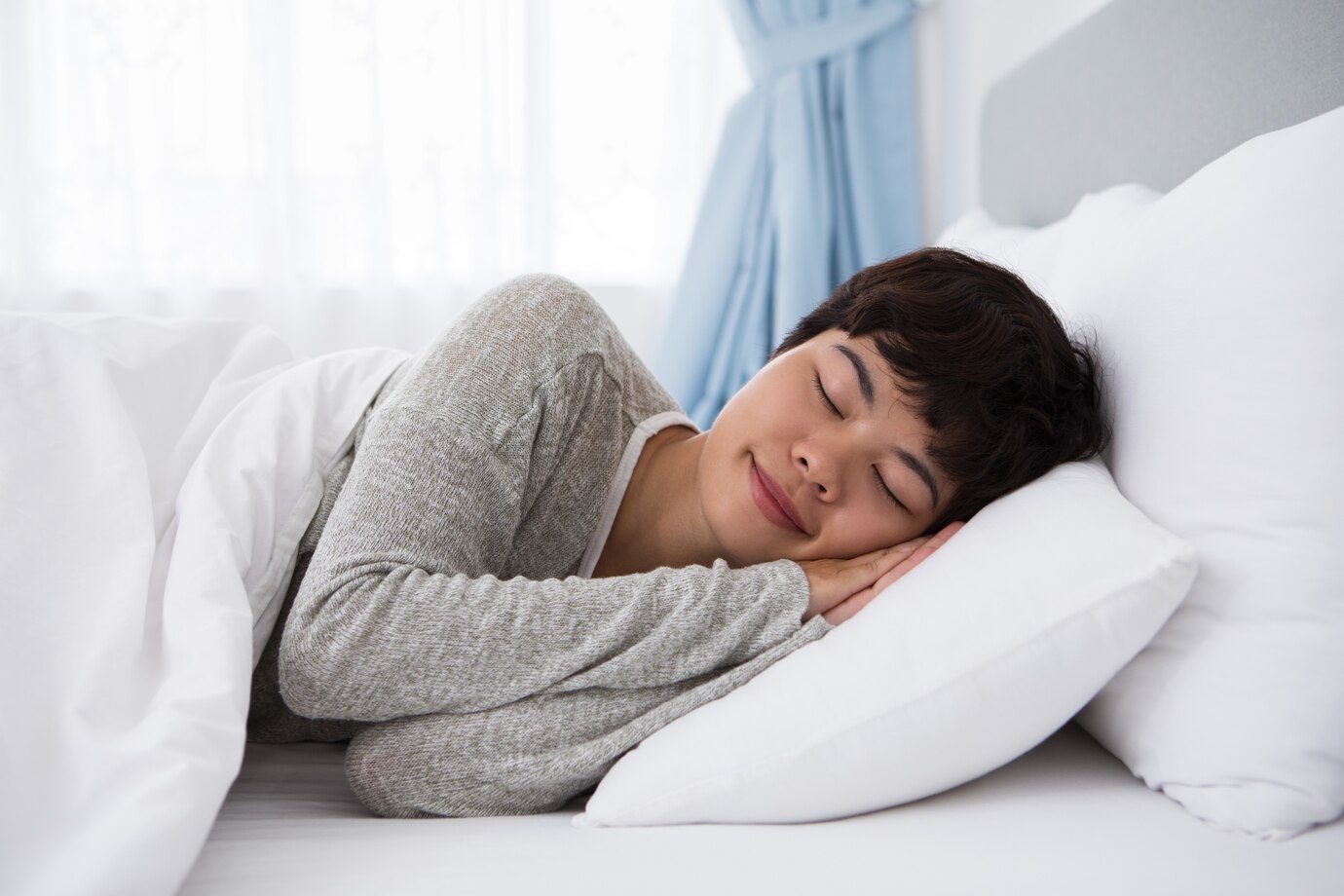
How to Improve Sleep Quality Naturally
Good sleep is essential to good health. Yet many people struggle with insomnia, restless nights, and poor sleeping habits. Stress, poor diet, and screen time before bed are all sleep disrupters.
Natural remedies and lifestyle changes can help you sleep better. No need for medication! In this guide, we’ll share better sleep tips and good sleep hygiene practices. Natural remedies for insomnia will also showed to you. These will help you achieve the restful sleep you need.
Why Sleep Quality Matters

Getting adequate, high-quality sleep is crucial for:
- Cognitive Function – Memory consolidation, problem-solving skills, and concentration.
- Emotional Well-Being – Regulating mood, reducing stress, and preventing anxiety.
- Physical Health – Strengthening the immune system, regulating metabolism, and promoting heart health.
- Hormonal Balance – Controlling appetite, insulin sensitivity, and stress hormones like cortisol.
- Longevity – Not getting enough sleep can increase the risk of chronic illnesses. This includes heart disease, diabetes, and obesity.
Establishing a Healthy Sleep Routine
1. Maintain a Consistent Sleep Schedule
Your body’s internal clock, or circadian rhythm, thrives on consistency. Stick to a fixed bedtime and wake-up time, even on weekends. This helps control your body’s sleep-wake cycle. It boosts sleep efficiency and lessens grogginess.
2. Create a Relaxing Bedtime Routine
Develop pre-sleep habits that signal to your brain that it’s time to wind down:
- Reading a book
- Taking a warm bath
- Practicing meditation or deep breathing exercises
- Listening to calming music
- Dimming the lights an hour before bed to encourage melatonin production
3. Optimize Your Sleep Environment
Your bedroom should be a sleep-friendly sanctuary:
- Darkness – Use blackout curtains to block external light.
- Quietness – Use earplugs or white noise machines to reduce disturbances.
- Cool Temperature – Keep your room between 60-67°F (15-19°C).
- Comfortable Bedding – Invest in a supportive mattress and breathable pillows.
- Declutter – A clutter-free space promotes relaxation and reduces stress.
Natural Remedies for Insomnia

1. Herbal Teas and Supplements
Certain herbs have natural sedative properties that promote relaxation and sleep:
- Chamomile – Contains apigenin, which helps induce sleepiness.
- Valerian Root – Known to reduce the time it takes to fall asleep.
- Lavender – Aromatherapy or tea can lower stress levels and enhance sleep quality.
- Magnesium – Helps regulate neurotransmitters responsible for sleep.
- L-theanine – Found in green tea, promotes relaxation and reduces stress.
- Glycine – An amino acid that enhances sleep quality by lowering body temperature.
2. Limit Stimulants Before Bedtime
Reduce consumption of:
- Caffeine (coffee, tea, chocolate) at least 6 hours before bedtime.
- Nicotine – Acts as a stimulant and disrupts sleep cycles.
- Alcohol – Although it may induce sleep, it reduces REM sleep, leading to restless nights.
3. Practice Mindfulness and Stress Reduction Techniques
Stress and anxiety are major contributors to poor sleep. Try:
- Meditation – Guided sleep meditations can help calm the mind.
- Progressive Muscle Relaxation (PMR) – Systematic tensing and relaxing of muscles to reduce stress.
- Journaling – Writing down worries before bedtime to clear your mind.
- Aromatherapy – Essential oils like lavender and bergamot can promote relaxation.
Sleep Hygiene: Habits to Improve Sleep Naturally
1. Reduce Screen Time Before Bed
Electronic devices emit blue light, which suppresses melatonin production and disrupts sleep. To improve sleep:
- Avoid screens at least one hour before bed.
- Use blue light filter settings or wear blue light-blocking glasses.
2. Get Natural Sunlight Exposure
Exposure to daylight helps regulate melatonin production. Spend at least 30 minutes outside each morning to reinforce a natural sleep cycle.
3. Exercise Regularly
Physical activity enhances deep sleep stages. Engage in at least 30 minutes of moderate exercise daily. But avoid vigorous workouts close to bedtime.
4. Avoid Heavy Meals at Night
Eating large meals before bed can lead to indigestion and discomfort. Opt for light, sleep-friendly snacks such as:
- Bananas (rich in magnesium and potassium)
- Almonds (contain melatonin and magnesium)
- Oatmeal (promotes serotonin production)
- Tart cherry juice (a natural source of melatonin)
5. Limit Naps During the Day
Short naps can refresh you, but long or irregular naps can mess up your nighttime sleep. Stick to 20-30 minute naps early in the afternoon.
6. Use the Bed Only for Sleep and Relaxation
Avoid working, watching TV, or using your phone in bed. Training your brain to associate the bed with sleep strengthens healthy sleep habits.
7. Try Sleep-Inducing Breathing Techniques
- 4-7-8 Breathing – Inhale for 4 seconds, hold for 7 seconds, and exhale for 8 seconds.
- Box Breathing – Inhale for 4 seconds, hold for 4 seconds, exhale for 4 seconds, and pause for 4 seconds.
The Role of Sleep Trackers and Apps
Technology can be beneficial when used correctly. Sleep trackers and apps can:
- Monitor sleep patterns and detect disturbances.
- Offer guided meditations and soundscapes for relaxation.
- Provide insights into improving sleep efficiency.
When to Seek Professional Help
If you still have sleep issues after trying these natural methods, see a doctor. Signs of a sleep disorder include:
- Chronic insomnia (difficulty falling or staying asleep for more than a month)
- Loud snoring and gasping for air (possible sleep apnea)
- Restless leg syndrome (uncontrollable leg movements at night)
- Excessive daytime fatigue despite sleeping enough hours
Get Your Zs Everyday

Improve sleep quality. The key is a mix of better sleep tips and consistent sleep hygiene tips. Natural insomnia remedies are also an important part. You can improve your sleep by adjusting your routine, diet, and environment. #5 These changes will make you wake up refreshed.
So sleep well and build a good habit now that is beneficial for the coming years. These strategies can re-entrain your body’s sleep rhythms. They bring enhanced mental clarity, emotional stability, and well-being.


